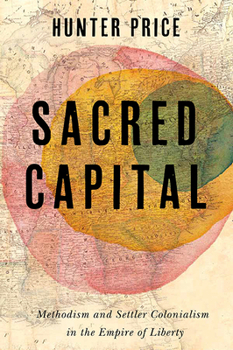Sacred Capital: Methodism and Settler Colonialism in the Empire of Liberty
Select Format
Select Condition 
Book Overview
How Methodist settlers in the American West acted as agents of empire In the early years of American independence, Methodism emerged as the new republic's fastest growing religious movement and its largest voluntary association. Following the contours of settler expansion, the Methodist Episcopal Church also quickly became the largest denomination in the early American West. With Sacred Capital, Hunter Price resituates the Methodist Episcopal Church as a settler-colonial institution at the convergence of "the Methodist Age" and Jefferson's "Empire of Liberty." Price offers a novel interpretation of the Methodist Episcopal Church as a network through which mostly white settlers exchanged news of land and jobs and facilitated financial transactions. Benefiting from Indigenous dispossession and removal policies, settlers made selective, strategic use of the sacred and the secular in their day-to-day interactions to advance themselves and their interests. By analyzing how Methodists acted as settlers while identifying as pilgrims, Price illuminates the ways that ordinary white Americans fulfilled Jefferson's vision of an Empire of Liberty while reinforcing the inequalities at its core.
Format:Paperback
Language:English
ISBN:081395133X
ISBN13:9780813951331
Release Date:July 2024
Publisher:University of Virginia Press
Length:280 Pages
Weight:0.92 lbs.
Dimensions:0.6" x 6.0" x 9.0"
Grade Range:Postsecondary and higher
Customer Reviews
0 rating





